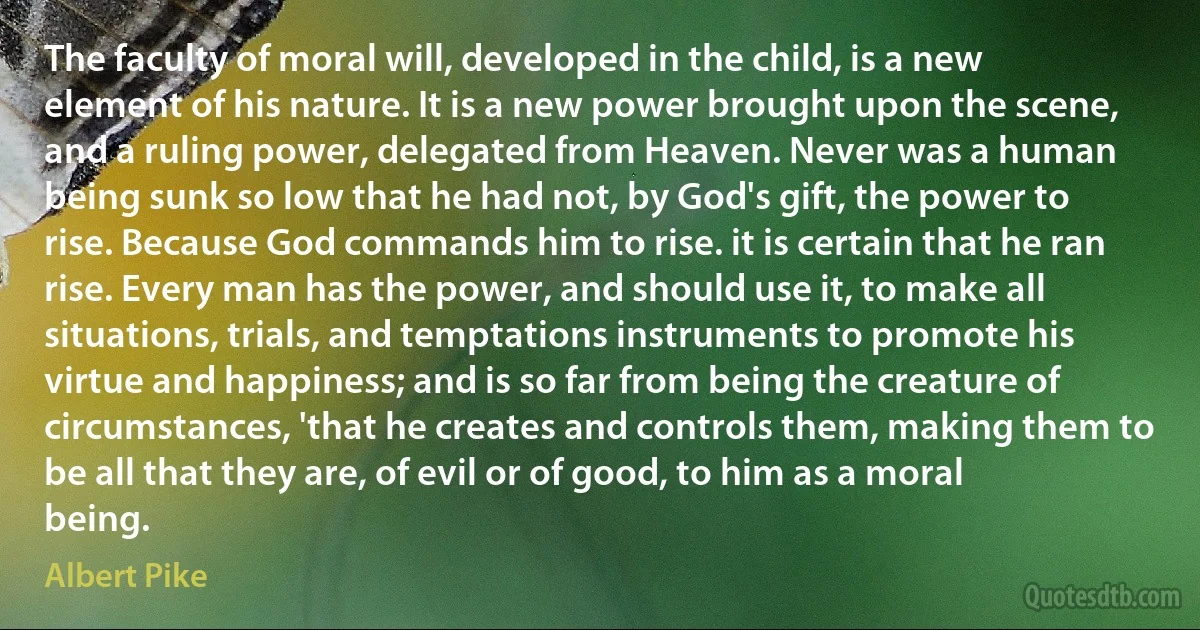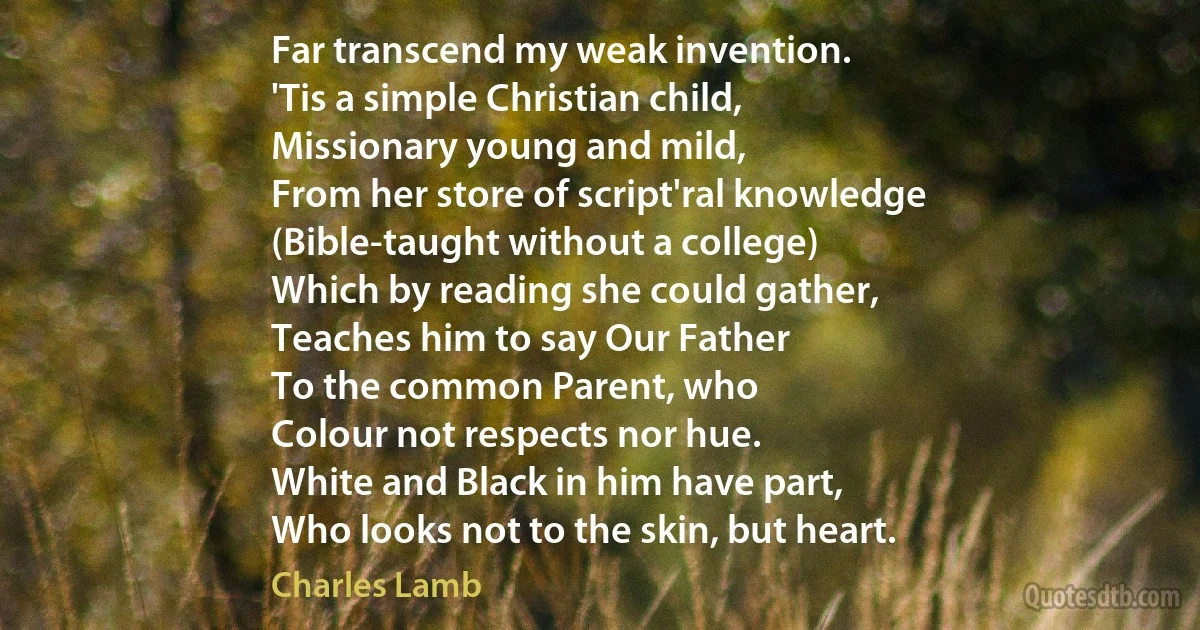Child Quotes - page 72
When the people of the colonies were defending their liberties against the might of kings, they chose their banner from the design set in the firmament through all eternity. The flags of great empires of that day have gone, but the stars and stripes remain. It pictures a vision of a people whose eyes are turned to the rising dawn. It represents of the hope of a father for his posterity. It was never flaunted for the glory of royalty, but to be born under it is to be the child of a king, and to establish a home under it is to be the founder of a royal house. Alone of all flags, it expresses the sovereignty of the people which endures when all else passes away. Speaking with their voice, it has the sanctity of revelations. He who lives under it and disloyal to it is a traitor to the human race everywhere. What could be saved if the flag of the American nation were to perish?

Calvin Coolidge
The mothers of all ages are those who have suffered because others suffered; for each of them, self is less sensitive than the sense of her child. Self is not locked up in the maternal heart, there to be cherished, as it is by the egoist, or to be crushed and silenced, as it is by the Saint. In the mother, self is not lost, but loses all its evil by the passionate personal love that distributes it among sons and daughters. Perfect self-less love would perhaps be distributed through the multitude, but a mother is not perfect: nature has so much use for her-separate, family use-that she cannot let her go free from irrational, indispensable partialities and limitings, even injustices, all serving the turn of the race.

Alice Meynell
I don't think there is any harm in it, but I tell you, there are demons and there are evil people in the world, and you post a picture like that and some cultist gets hold of it or a coven and they begin muttering curses against an unborn child. [...] You never know what somebody's going to do.

Pat Robertson
Know you what it is to be a child? It is to be something very different from the man of today. It is to have a spirit yet streaming from the waters of baptism; it is to believe in love, to believe in loveliness, to believe in belief; it is to be so little that the elves can reach to whisper in your ear; it is to turn pumpkins into coaches, and mice into horses, lowness into loftiness, and nothing into everything, for each child has its fairy godmother in its soul; it is to live in a nutshell and to count yourself the king of infinite space; it is
To see a world in a grain of sand,
And a Heaven in a wild flower,
Hold infinity in the palm of your hand,
And eternity in an hour;
it is to know not as yet that you are under sentence of life, nor petition that it be commuted into death.

Francis Thompson
Man is as much a slave to his immediate surroundings now as he was when he lived in tree-huts. Give him the highest, the most exciting thoughts about man's place in the universe, the meaning of history; they can all be snuffed out in a moment if he wants his dinner, or feels irritated by a child squalling on a bus. He is bound by pettiness.

Colin Wilson
My theory was that we are all fundamentally 'multiple personalities', beginning with the baby and the child, and slowly developing into more complex selves. If, for some reason, we abruptly cease to develop -- through some trauma that undermines self-confidence -- all those potential personalities are stunted and repressed. And some accident or violent shock may give one of them the opportunity to 'take over'. This suggests, of course, that in some mysterious sense, our 'future' personalities are already there, in embryo, so to speak, and that they also develop as we mature. We move from personality to personality, as we might climb a ladder. The Beethovens and Leonardos got further up the ladder than most of us; yet even they failed to reach the top, as we can see if we study their lives.

Colin Wilson
Now he saw the problem with great clarity. If he lived here, life would be pleasant and safe. But it would also be predictable. A child could be born here, grow up here, die here, without ever experiencing the excitement of discovery. Why did Dona question him endlessly about his life in the burrow and his journey to the country of the ants? Because for her, it represented a world that was dangerous and full of fascinating possibilities. For the children of this underground city, life was a matter of repetition, of habit. And this, he suddenly realized, was the heart of the problem. Habit. Habit was a stifling, warm blanket that threatened you with suffocation and lulled the mind into a state of perpetual nagging dissatisfaction. Habit meant the inability to escape from yourself, to change and develop...

Colin Wilson
The important thing with a child is that you love them, you protect them and you help them to grow and find out who they are. And as a parent, it's my responsibility to help them to become independent and get all the knowledge and a broad view of the world and life. I know that Nic [former wife Nicole Kidman] absolutely agrees with that. And that's what's important: being there.

Tom Cruise
I suppose nowadays it's all a question of surgery, isn't it? Of course the notion is beautiful, the idea of staying a boy and a child forever, and I think you can. I have known plenty of people who, in their later years, had the energy of children and the kind of curiosity and fascination with things like little children. I think we can keep that, and I think it's important to keep that part of staying young. But I also think it's great fun growing old.

Johnny Depp
When a child... discovers his own imagination, he suddenly walks into a new life. ...seeing situations that do not exist. ...in part as fantasy, and in part as a quite rational exploration of future experiences. ...play ...frolics in the fantasy world, and it experiments in the rational world... They project themselves into all worlds, possible and impossible, and discover for themselves the knife-edge boundary between them.

Jacob Bronowski



